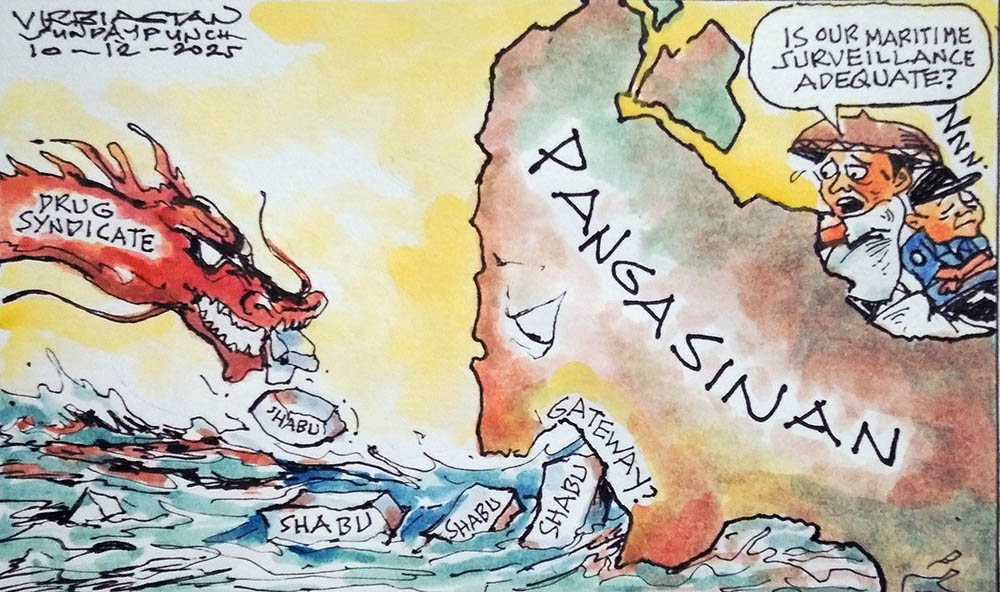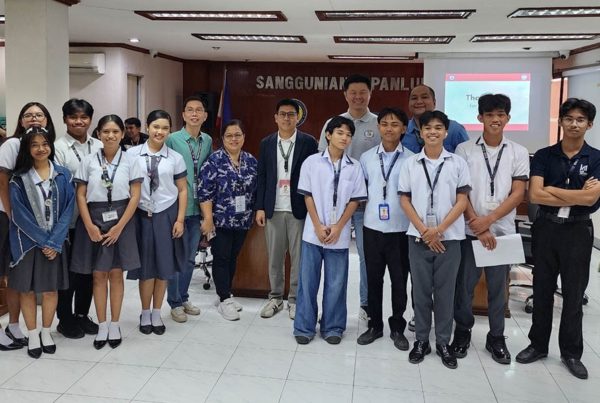
Shabu from the sea
PANGASINAN once again found itself in the national headlines last week, and not for a good reason.
Authorities seized a staggering 1,020 kilos of shabu valued at ₱6.9 billion in a warehouse in Barangay Laois, Labrador, on October 3.
Lawmen believe that these are linked to the ₱850-million worth of shabu confiscated in Bugallon just two days before, while being transported to Manila. These back-to-back operations confirmed a disturbing revelation that Pangasinan has now become a favored drop-off point for illegal drugs entering the country.
A few months back, fishermen from Agno, Bani, and Anda recovered floating packs of shabu. And earlier this year, the Philippine Drug Enforcement Agency (PDEA) reported intercepting 800 kilos of shabu in Zambales, believed to be bound for Pangasinan.
Many even suspect that these small, floating shabu often serve as decoys for much larger shipments orchestrated by powerful international drug syndicates, particularly those based in China.
Pangasinan’s long coastline and proximity to the West Philippine Sea make it both a blessing and a curse. While it offers vast fishing grounds and access to maritime trade, it also provides smugglers with convenient routes for landing illegal goods under the cover of darkness.
Fishermen have often been the first to uncover these illicit shipments, turning over the drugs they find to the authorities — a commendable act of civic duty in the face of danger.
In 2022, authorities also discovered a ton of shabu inside a house in a subdivision in Pozorrubio, believed to have come from the sea, given that there was no drug laboratory existing in the country, and that remains true until now. And as far back as the early 2000s, then President Joseph Estrada and PNP Chief Panfilo Lacson personally came to Lingayen to inspect tons of shabu found floating in the sea by fishermen in Infanta.
The story seems to repeat itself. The persistence of drug landings in Pangasinan should alarm both national and local authorities. It raises serious questions about maritime surveillance, coastal security, and the capability or will of our enforcement agencies to guard our vast shoreline.
Pangasinan must not be allowed to bear the stigma of being the country’s gateway for illegal drugs.









